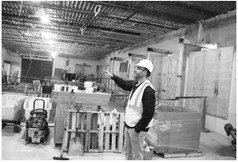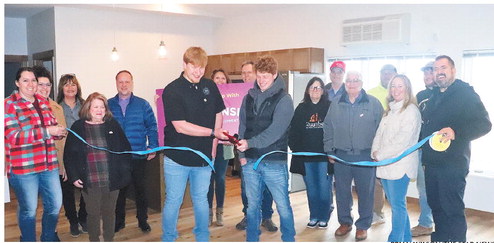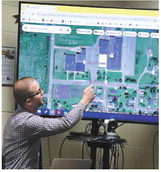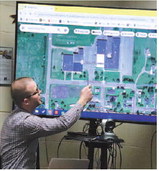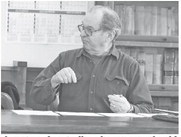County officials demand increased local control
Frustrated by their lack of control over environmental issues impacting area residents, Marathon County supervisors have sent a letter to Gov. Tony Evers and state lawmakers calling on them to relinquish more authority to local elected officials.
In a unanimous vote, 30-0, last week Tuesday, county board members agreed to send a one-page letter to state officials drafted by supervisor Jacob Langenhahn, chairman of the Environmental Resources Committee (ERC).
Langenhahn’s letter points out three particular areas where county officials are hamstrung by state statutes and codes that preempt local ordinances: metallic mining, wind turbine siting and runoff from Concentrated Animal Feeding Operations (CAFOs). Actions taken by state regulatory agencies and the legislature have left county officials with little power to deal with their constituents’ concerns, he wrote.
“Ultimately, the result of these strict limitations on local action is a collection of local ordinances that largely mimic the state’s standards but fail to address the problems they were designed to solve or adapt to citizen concerns and complaints,” he wrote. “County residents continue to be frustrated over their concerns being largely ignored due to the standards promulgated in state statutes and administrative rules.”
At the board’s July 13 educational meeting, supervisor Tim Sondelski said he appreciated the call for more local control, especially when it comes to wind farms proposed for townships in the western half of the county.
“These wind turbines will be very destructive to cropland, farms, property values and human and animal health, and so much more,” he said.
In May, a representative of the Wisconsin Public Service Commission told members of the ERC that all wind power operations generating 100 megawatts or more fall under the jurisdiction of PSC code 128, which cannot be precluded by county ordinances.
At the same time, however, local townships in western Marathon County are enacting ordinances to try and limit the construction of large wind turbines within their borders. These actions came as a response to a public backlash against multiple power companies attempting to establish wind farms in Marathon and Clark counties.
Langenhahn said he originally wrote his letter at the end of May, but he did some rewriting before it came before the ERC and Executive Committee, which both approved it for consideration by the full board. Now that the state budget has been adopted, he hopes that lawmakers and the governor will pay attention to the issue of local control.
“If there’s one thing to know about this letter, is that it’s essentially asking the state of Wisconsin to return that local authority to our communities,” he told the board on July 13. “At the very least, I’m hoping that the state of Wisconsin doesn’t take any more local authority away from us.”
In 2018, when dozens of county residents showed up to meetings to express concerns about possible metallic mining in the eastern part of the county, Langenhahn said legal experts told supervisors “there’s only so far you can go” in regulating those operations.
When it comes to CAFOs, agricultural operations with 500 or more animals, Langenhahn said the county has no say at all in regulating them, which fall under Wisconsin DNR’s jurisdiction. If the county wants to go “above and beyond” what the DNR does, he said it would have to get permission from “some bureaucrat in Madison.”
Langenhahn said county supervisors “need to do something” to assert themselves as elected officials, so that their counterparts on the state level realize they are capable of coming up with their own solution to local issues.
“The solutions that are ultimately the best to address the problems within our communities come from our community,” he said. “They don’t come from Madison.”
